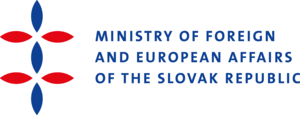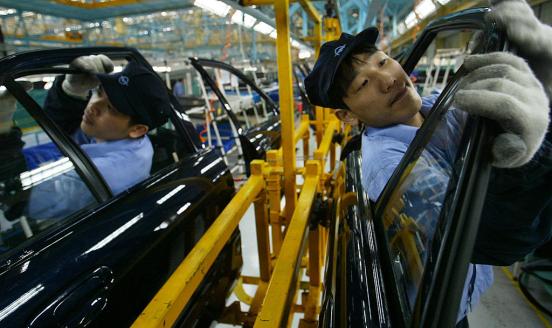
Centre for European Affairs, member of the Central European Strategy Council, Bruegel, the Ministry of Finance of SR
and Ministry of Foreign and European Affairs of SR are organizing another round of TATRA SUMMIT conferences in Bratislava.
The event will review the unfolding design of the 2014 EU political cycle, shaped by changes in the leadership posts of the EU institutions and their outlined policy goals for the next five years. The main aim of the conference is to address strategic growth agenda. Furthermore, the debate will look at the key priorities of the new political cycle in Europe. In reference to that, the panels will seek to address the following areas - the flexibility of the stability and growth pact; the state of EMU completion; the area of multispeed Europe in the context of the new EU architecture; buildup of the EU energy union and its impact on the industry competitiveness.
TATRA SUMMIT 2014 will also provide a platform for Central Europe to present its recommendations and regional priorities, and, thus, make its voice heard in the unveiling political cycle of the EU.
AGENDA
WEDNESDAY, 12 NOVEMBER, 2014
14:30 – 16:30 POLICY SESSION: CENTRAL EUROPEAN PERSPECTIVES ON THE EU INTEGRATION (ON SEPARATE INVITATION ONLY)
17:00 – 17:50 REGISTRATION
18:00 – 18:15 TATRA SUMMIT WELCOME ADDRESS
PETER KAŽIMÍR, Deputy Prime Minister and Minister of Finance of the Slovak Republic, Bratislava
AMB. IVAN KORČOK, Permanent Representative of the Slovak Republic to the EU; Founding Member of the Centre for European Affairs, Brussels
RÓBERT VASS, Executive Vice-President and CEO, Central European Strategy Council; Founding Member of the Centre for European Affairs, Bratislava
18:15 – 20:00 SESSION I: BATTLE FOR GROWTH: DIVERGENT VIEWS FROM EUROPE
The EU policy makers have agreed on a number of key reforms since the eruption of the crisis over six years ago. The policy choices were never easy given the divergent views from different capitals. The situation is no different today. While Germany leads the core countries with fiscal discipline strategy, France, Italy and even the IMF are increasingly supportive of reforming the EU fiscal framework to accommodate the much needed growth measures. Most governments and institutions can agree on the need for structural reforms but even here the implementation has been lukewarm. While investments have lately received strong support from many corners of the EU, some states believe the major bulk must come from the private sources while others don’t think this can happenwithout significant public support. Can the EU agree on the appropriate growth strategy or are we destined to half-measures just to avoid the collapse? How far can we go with the flexibility of the Growth and Stability Pact while aiming to achieve the growth and stability in Europe?
INTRODUCTORY REMARKS BY:
JYRKI KATAINEN, Vice-President for Jobs, Growth, Investment and Competitiveness, European Commission, Brussels (Video Address)
JAN KRZYSZTOF BIELECKI, Former Prime Minister of Poland; Chairman of the Economic Council, Chancellery of the Prime Minister, Warsaw
ENRICO LETTA, Former Prime Minister of Italian Republic; Member of the Chamber of Deputies, Italian Parliament, Rome
JÖRG ASMUSSEN, Permanent State Secretary, Federal Ministry of Labour and Social Affairs of the Federal Republic of Germany, Berlin
CARSTEN PILLATH, Director General, Directorate General Economic Affairs and Competitiveness, Council of the European Union, Brussels
HARALD WAIGLEIN, Director General for Economic Policy and Financial Markets, Federal Ministry of Finance of the Republic of Austria, Vienna
CHAIRED BY: KAREL LANNOO, CEO, Centre for European Policy Studies, Brussels
20:15 TATRA SUMMIT COCKTAIL
VENUE: KEMPINSKI HOTEL RIVER PARK
20:45 TATRA SUMMIT DINNER (ON SEPARATE INVITATION ONLY)
CO-HOSTED BY TATRA BANKA
THURSDAY, 13 NOVEMBER, 2014
09:45 – 10:30 KEYNOTE SPEECH: TOWARDS A MORE POWERFUL EU: REBALANCING THE EU ARCHITECTURE1
MAROŠ ŠEFČOVIČ, Vice-President for the Energy Union, European Commission, Brussels
CHAIRED BY: PETER SPIEGEL, Head of the Brussels Bureau, The Financial Times, Brussels
10:30 – 12:00 SESSION II: NEXT FIVE YEARS: REGAINING TRUST OR LOSING EUROPE
After the Junker’s European Commission has been confirmed by the European Parliament vote, the ultimate goal for the new EU political cycle is clear - not only to address “more Europe”, secure growth, jobs and investments but to regain trust to avoid losing Europe. Call for “more Europe” offers divergent scenarios for the future of Europe. It challenges the European society and EU leaders on their attitude towards the level of integration. In post-crisis times, framed by the new political cycle, the EU has to take up the challenges responsibly to become more powerful. In these circumstances, is Europe ready for deeper economic and political integration? Are the divergent views on deepening the integration making the EU more powerful or are they creating the multi-speed Europe? How to rebalance the EU architecture to foster the interests of the EU? What are the biggest challenges for the new EU political cycle and how to tackle them? Does the new EU leadership offer clear solutions for the UK question, immigration issues, the rise of Eurosceptic populism and the lack of democratic legitimacy?
INTRODUCTORY REMARKS BY:
GÜNTER VERHEUGEN, Honorary Professor, European University Viadrina, Frankfurt (Oder); former Vice-President of the European Commission, Brussels
JEAN-CLAUDE PIRIS, former Legal Counsel, Council of the European Union, Brussels
GEORGE S. ZAVVOS, Legal Adviser in the Legal Service of the European Commission; first European Commission Ambassador in the Slovak Republic; Former Member of the European Parliament, Brussels
JOZEF BÁTORA, Director, Institute of European Studies and International Relations, Comenius University, Bratislava
CHAIRED BY: PETER SPIEGEL, Head of the Brussels Bureau, The Financial Times, Brussels
12:00 – 13:30 BUFFET LUNCH
13:30 – 14:00 KEYNOTE SPEECH: CENTRAL EUROPEAN RECIPE FOR GROWTH
Central Europe is a success story of the last decade but it has not been untouched by the Eurozone crisis. The growth rate has come down and almost converged with that of the rest of the EU. This is a major challenge for the region – successfully and sustainably to emerge from the deepest economic crisis in a generation. Slovakia, the only Eurozone member from the Visegrad region, currently presiding the Visegrad Group, is shaping the debate on the Central European recipe for growth – the recipe to challenge slow growth, high unemployment, insufficient public and private investment, macroeconomic imbalances, public debt and a lack of competitiveness.
H. E. ROBERT FICO, Prime Minister of the Slovak Republic, Bratislava
CHAIRED BY: AMB. IVAN KORČOK, Permanent Representative of the Slovak Republic to the EU; Founding Member of the Centre for European Affairs, Brussels
14:00 – 15:30 SESSION III: ECONOMIC RECOVERY – STILL AN UNFINISHED BUSINESS?
Contrary to many analysts’ expectations a few years ago, the Eurozone managed to survive its debt crisis intact. But given the political costs, can we afford a long period of weak growth, low inflation and high unemployment? And what can be done to avoid such a scenario? Despite the consolidation efforts, the government debts have not come down. Structural reforms are not being implemented. Bank lending is weak while the capital markets in many countries are practically non-existent. Investments are far below the pre-crisis levels and the external demand has lately been disappointing. Where can the EU find its much needed growth engine?
IVAN LESAY, Senior Advisor to Minister of Finance of the Slovak Republic, Bratislava
JOZEF SÍKELA, Chairman of the Board and CEO, Slovenská sporiteľna, Bratislava
ROLF STRAUCH, Director, Research and Institutional Relations of the European Financial Stability Facility, Luxembourg
GUNTRAM WOLFF, Director, Bruegel, Brussels
CHAIRED BY: MARTIN ŠANTA, Head of the Communication Department, Ministry of Finance of the Slovak Republic, Bratislava
15:30 – 16:00 COFFEE BREAK
16:00 – 17:30 SESSION IV: EU ENERGY UNION: CAN IT BE BOTH GREEN & COMPETITIVE?
The future EU Energy Union should ensure energy supply security and solidarity among the EU member states. Policy steps and action will lead towards the integration of national energy markets, reducing European energy demand, decarbonisation of the energy mix and the increase of investments in research and innovations. While achieving the “green” targets and the climate agenda itself remains one of the key pillars of the energy union, some are increasingly worried about the impact of these policies on the competitiveness of Europe. The concerns are especially strong in times when Europe is still searching for the dynamic engines for growth. What is the ultimate objective of the European green and competitive energy union?
MARY VERONICA TOVŠAK PLETERSKI, Director for European and International Carbon Markets, DG for Climate Action, European Commission, Brussels
PETER JAVORČÍK, State Secretary, Ministry of Foreign and European Affairs of the Slovak Republic, Bratislava
GEORGE F. BABCOKE, President, US Steel, Košice, Slovakia
THOMAS JAN HEJCMAN, Member of the Board of Directors, RWE Slovakia, Chief Executive Officer, Východoslovenská energetika, Košice
CHRISTIAN EGENHOFER, Head of the Energy and Climate Change Research Programme, CEPS, Brussels
CHAIRED BY: SANDRINE DIXSON-DECLEVE, EU Director, Prince of Wales's EU Corporate Leaders Group, Brussels
17:30 – 17:45 CLOSING REMARKS
17:45 FAREWELL GLASS OF WINE
Practical details
- Time: 12 November, 17:00 - 13 November 17:00
- Location: Kempinski Hotel River Park, Bratislava
Conference partners are the Centre for European Affairs, Ministry of Finance of the Slovak Republic and Ministry of Foreign and European Affairs of the Slovak Republic

|
|---|

|

|


